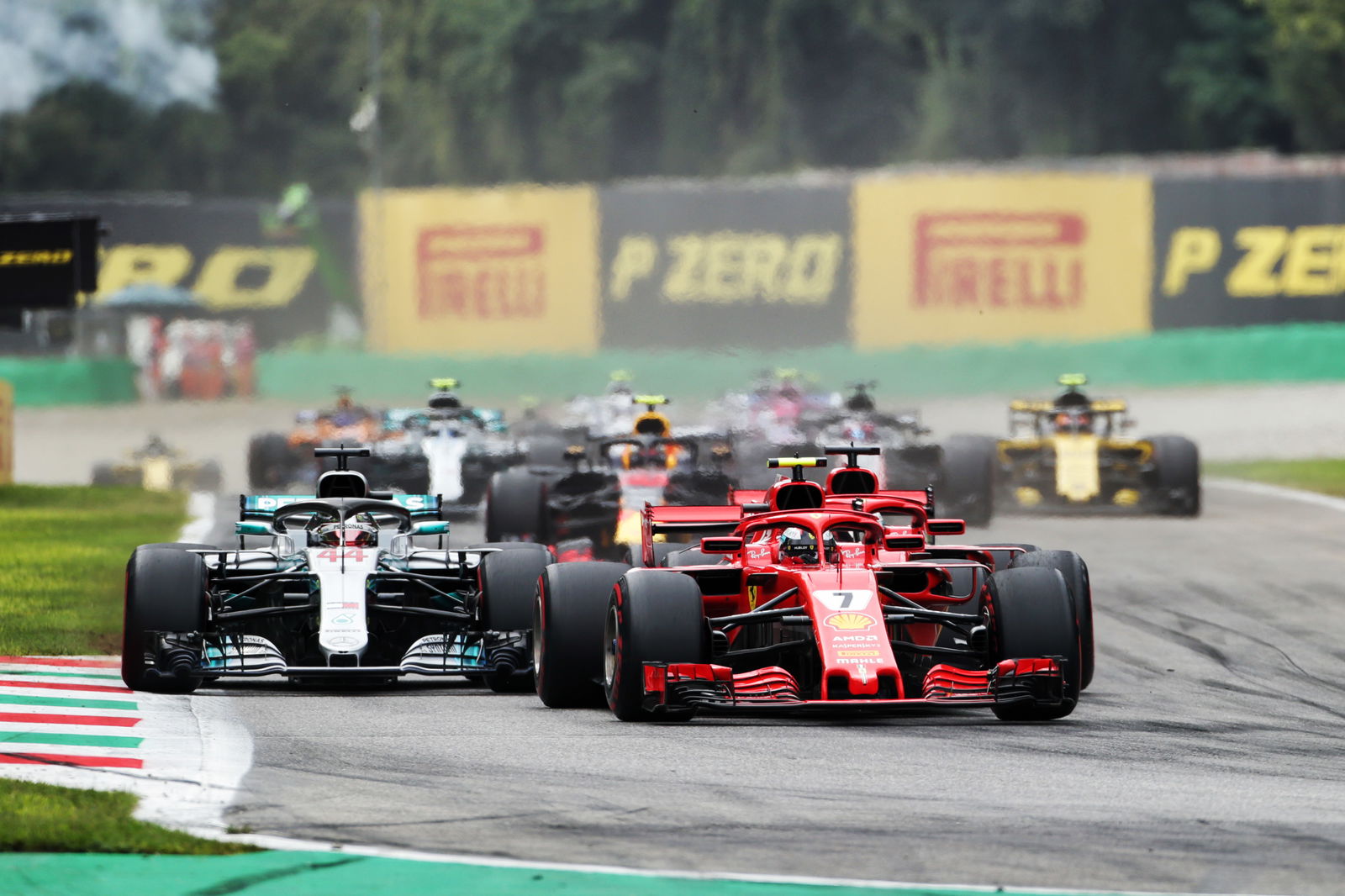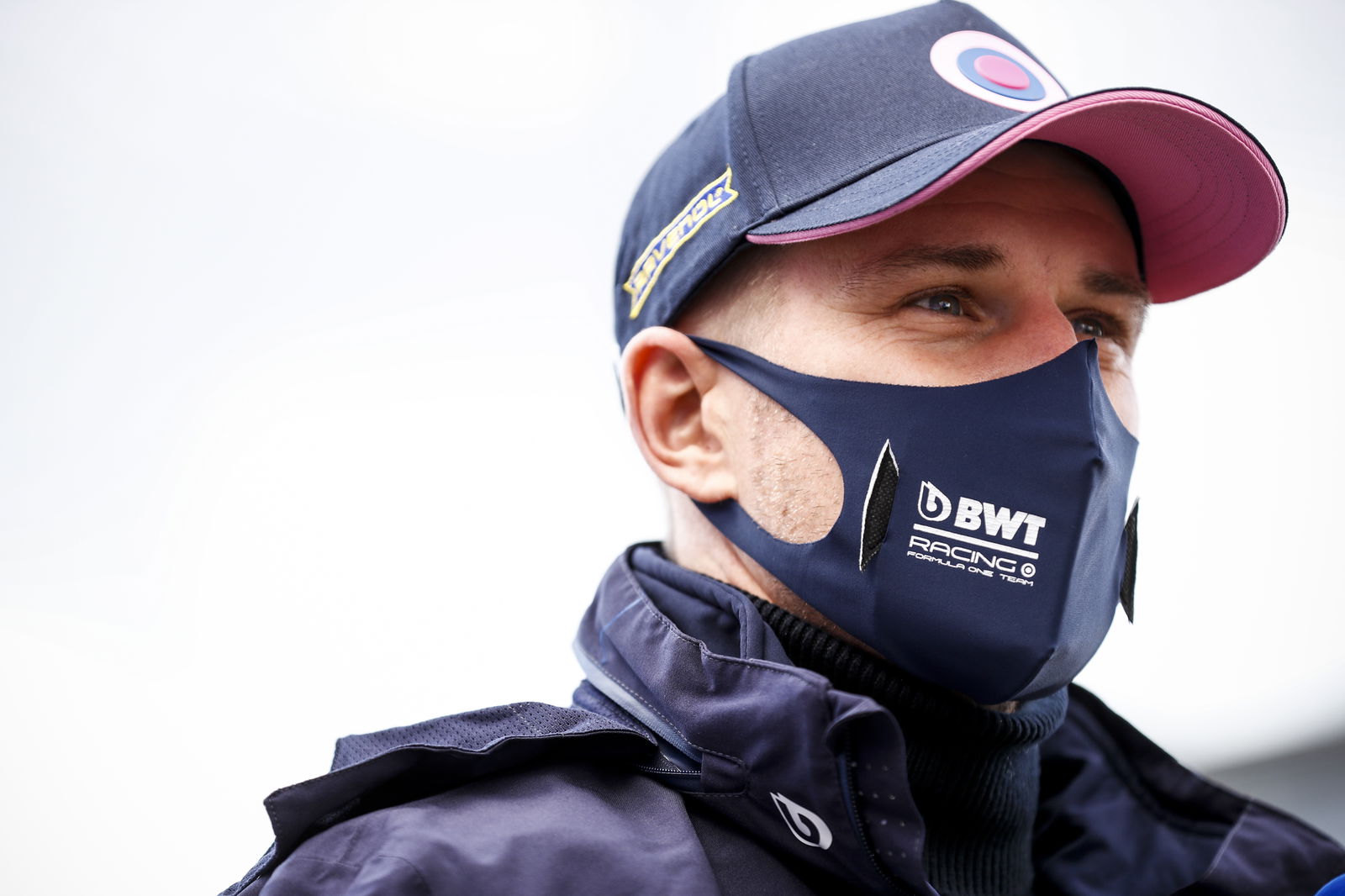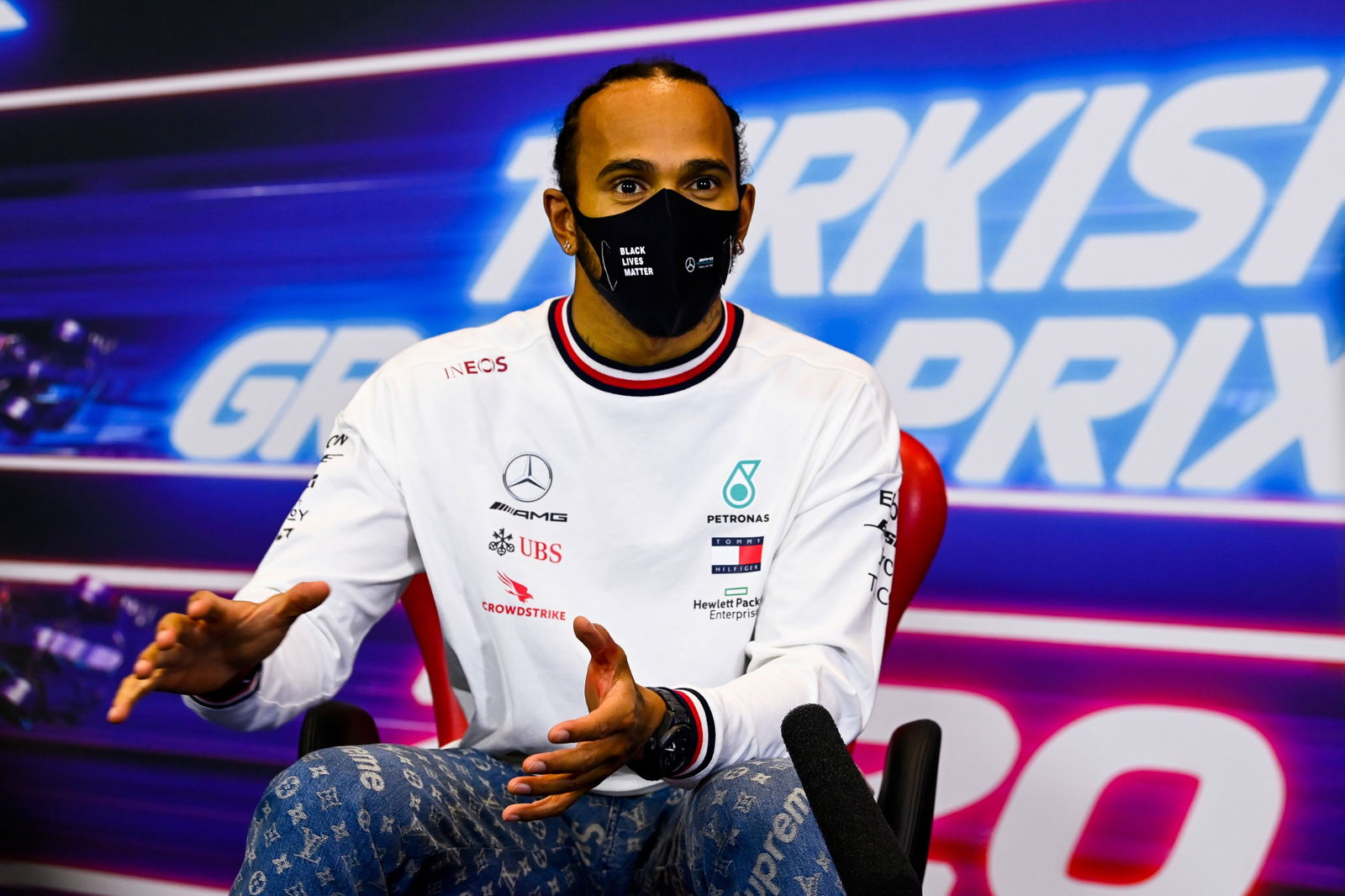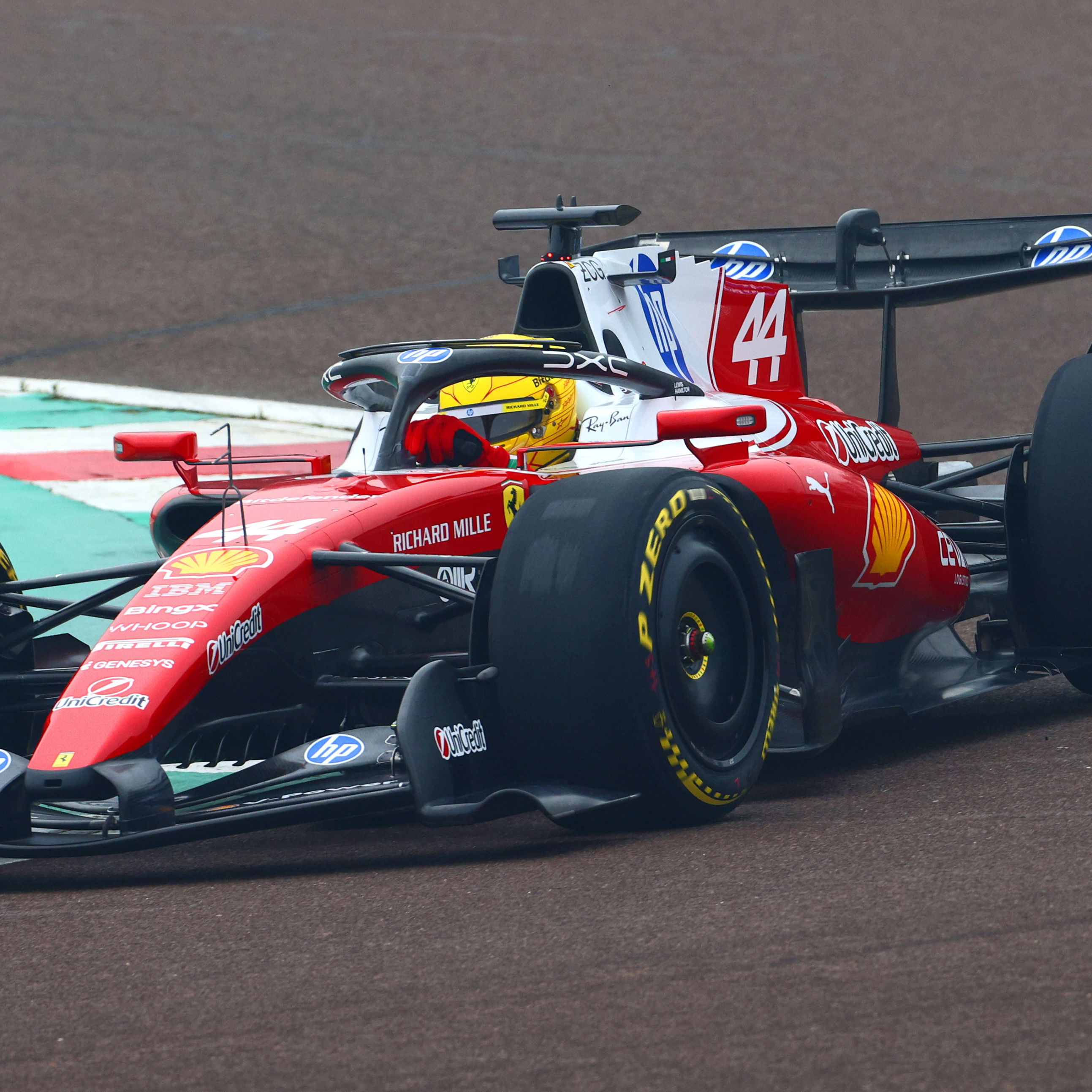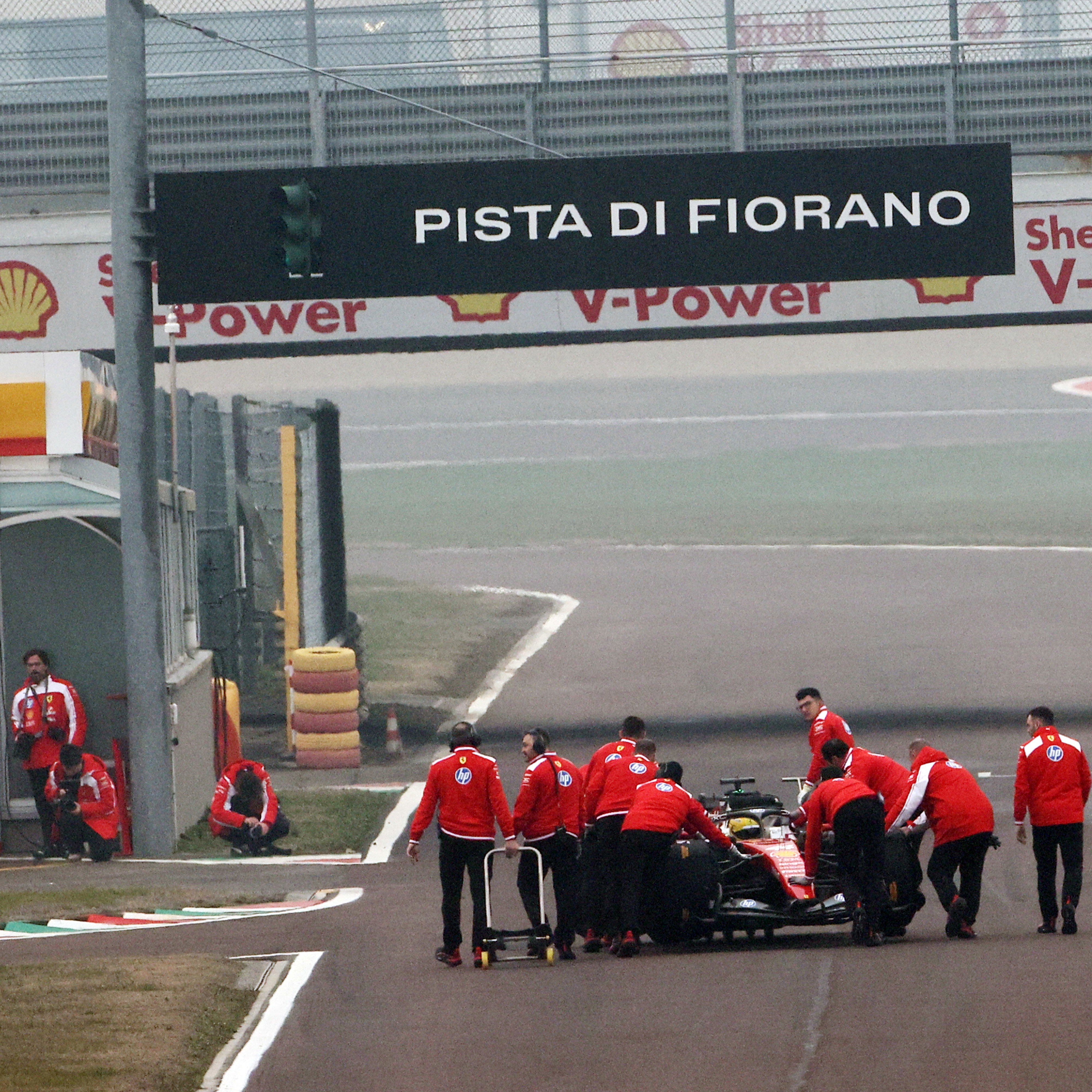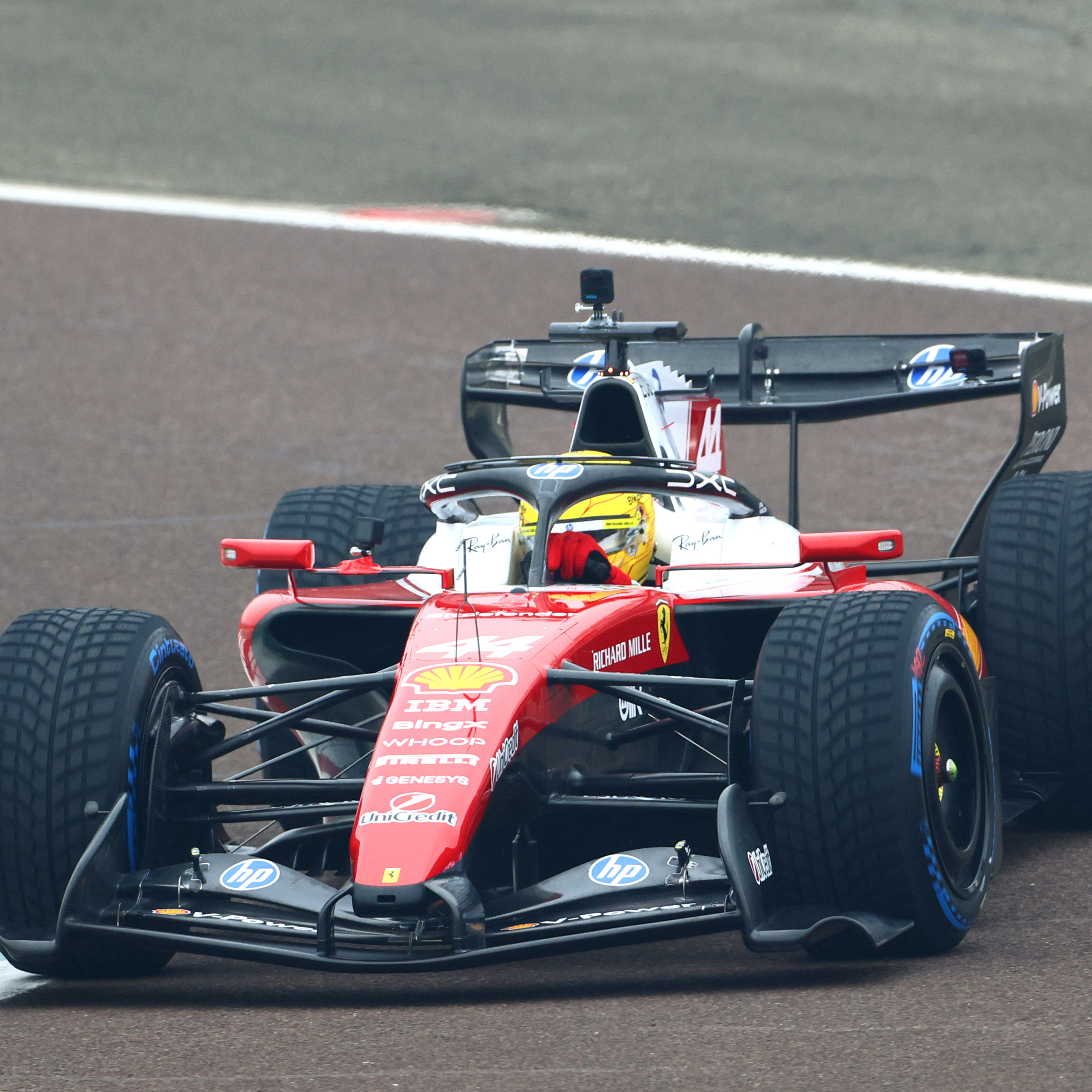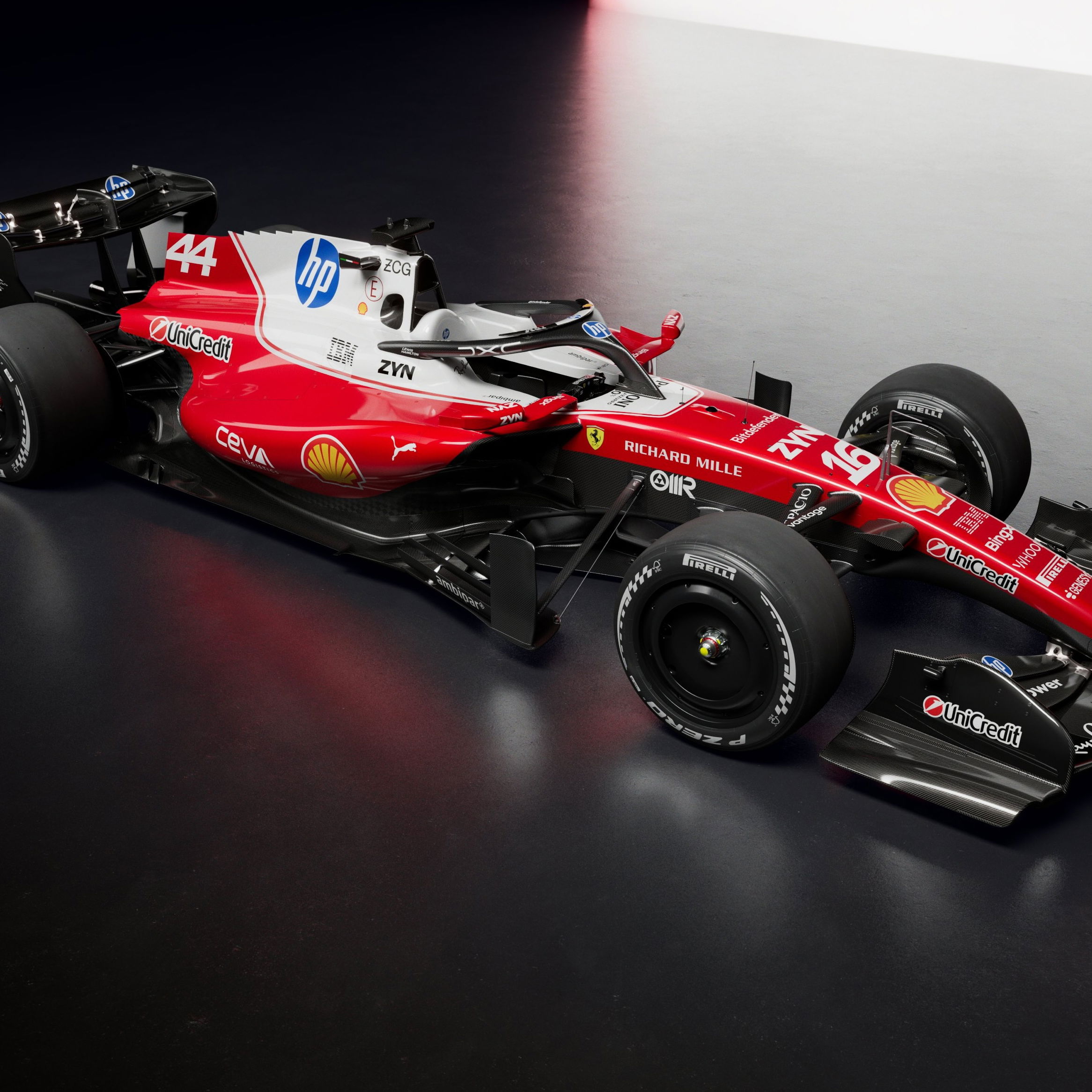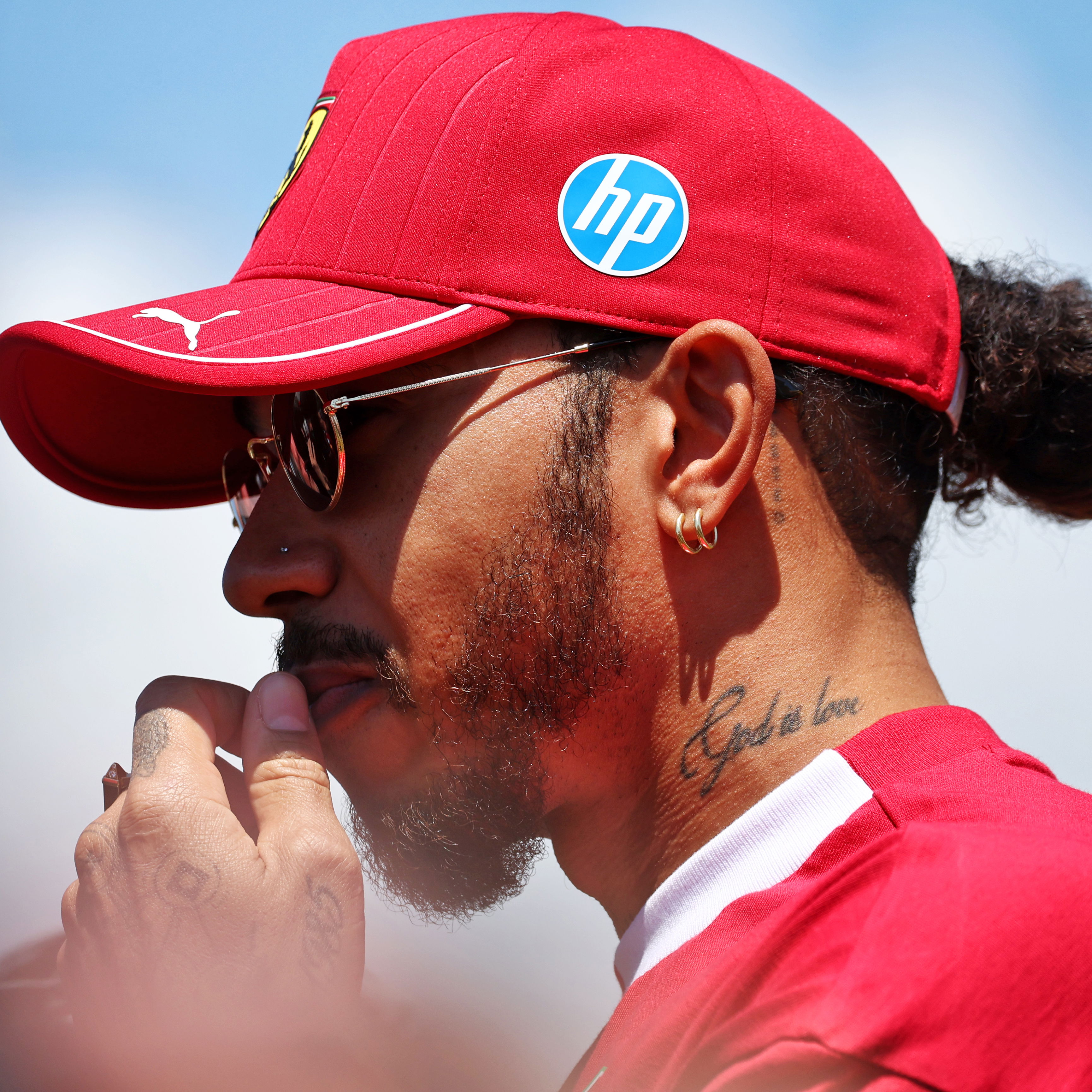Magnificent seven: Lewis Hamilton’s F1 world titles ranked

From the unrivalled late drama of 2008 to a record-equalling triumph in 2020, we rank all seven of Lewis Hamilton’s world championship triumphs in Formula 1.
This list is not to suggest that any of Hamilton’s successes were ‘bad’ or less deserved in any way. Instead, it is more a consideration of how they stack up against each other when considering a number of factors.
Pure sporting entertainment value is not the sole ingredient of the order, with the strength of relative competition and seasonal performance also taken into account when formulating this ranking.
7. 2015: Hamilton v Rosberg, the sequel
Hamilton and Rosberg’s rivalry had already ignited in 2014 and it continued into the second chapter of a three-year story in 2015.
This time around, Hamilton held a clear advantage as he largely dominated the season, winning 10 times compared to Rosberg’s five victories and bettering the German on Saturdays too with a pole ratio of 11-7 as Mercedes won all but three races.
Hamilton wasn’t pushed as hard by Rosberg as he was in 2014, nor did he suffer as many reliability failures compared to the previous year. There were fewer controversial flash points between the pair as well, with the only notable tensions arising in China where Rosberg accused Hamilton of deliberately backing him into his rivals and Monaco, where Hamilton was denied victory because of a strategic error by his Mercedes team.
Hamilton was at his brilliant best at Silverstone, where he battled back from a bad start and late-race rain to win thanks to a perfectly-timed call to switch from slicks to intermediates. It was a result that propelled Hamilton to take five wins from the next seven rounds as he wrapped up the title with three races to spare after pressurising Rosberg into a race-losing mistake at the United States Grand Prix.
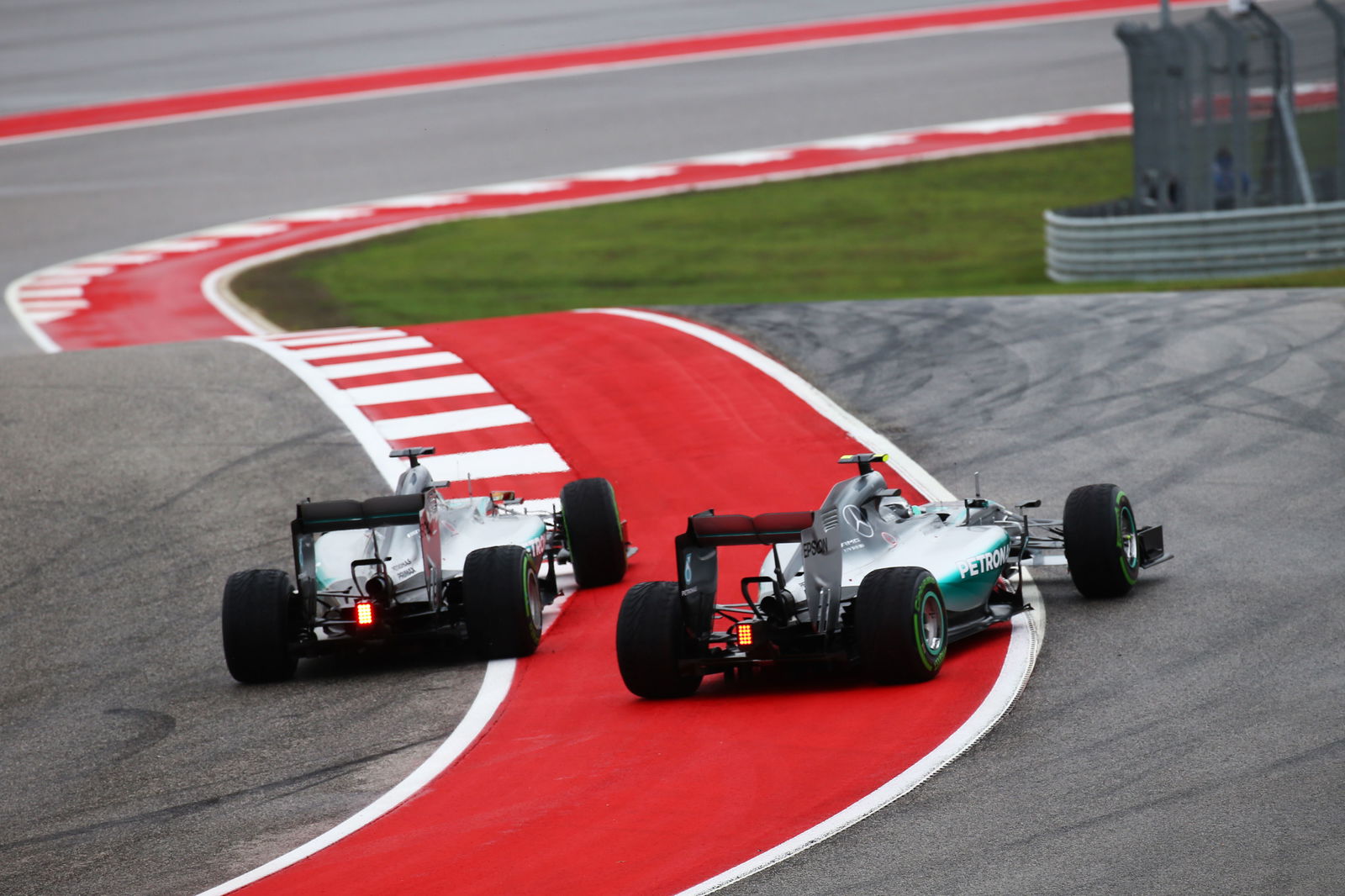
6. 2019: Three in a row becomes six overall
Hamilton laid the foundations for his sixth title with a dominant start to the season that included seven wins from the first 10 races that enabled him to pull clear of Bottas after his teammate had won the opener in Australia.
The highlight of Hamilton’s season came in Monaco where on older tyres, he claimed a long-awaited third win in Monte Carlo after resisting intense pressure from Max Verstappen.
As well as fending off the title aspirations of a reinvigorated Bottas, Hamilton also had to deal with a challenge posed by Ferrari and Red Bull in the second half of the campaign.
*Just* four further victories followed after another British GP triumph as Ferrari hit back following the summer break with remarkably strong form in qualifying - linked to its controversial engine settlement with the FIA.
From here Hamilton often found himself playing catch up in the races, but his strong Sunday showings helped him overcome the obstacles in his way and by the US GP, a second place finish behind Bottas was enough to seal a third consecutive title with three rounds to spare.
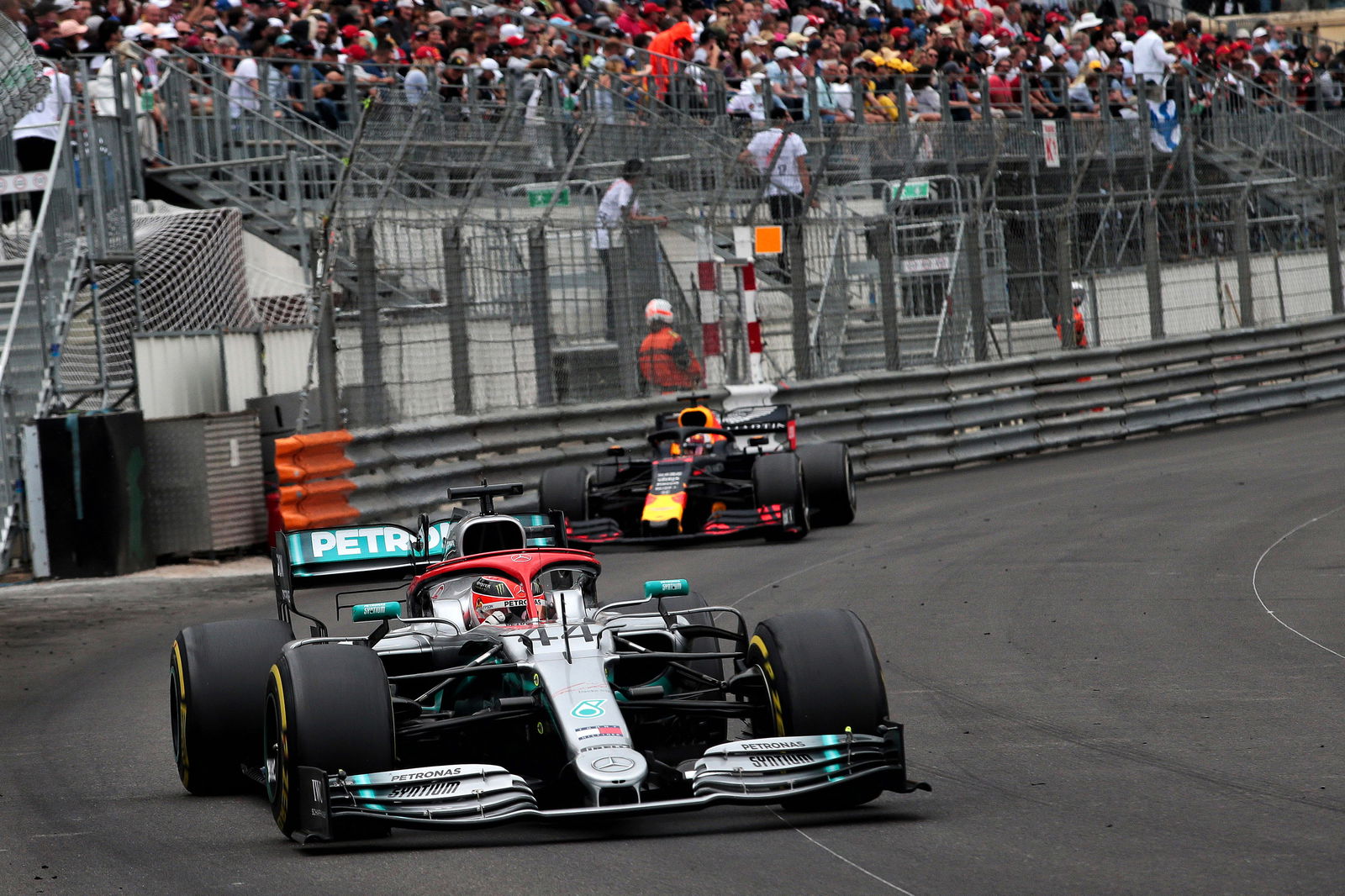
5. 2014: First title with Mercedes
Many questioned Hamilton’s decision to leave his familiar surroundings at McLaren for a then-uncompetitive Mercedes team, but following an unremarkable bedding-in year in 2013, Hamilton proved his call had been justified as he emerged with the dominant car at the start of the 1.6-litre V6 turbo hybrid era.
Things got off to a bad start as Hamilton immediately conceded 25 points to Rosberg at the season-opener in Melbourne due to an engine problem, but the Briton quickly bounced back with a run of four victories on the trot.
This included the classic duel-in-the-desert that Hamilton prevailed to in Bahrain and also featured the first signs of tension arising between the two drivers. First, Rosberg used an engine mode he shouldn’t have accessed at Sakhir, before Hamilton returned the favour in Barcelona.
The gamesmanship ramped up another level in Monaco with Rosberg’s infamous trip down the Mirabeau escape road on his way to sealing pole, and then the victory around the streets of Monte Carlo.
Hamilton had to overcome a DNF in Canada and further qualifying setbacks at the Red Bull Ring and Budapest before the rivalry exploded with a collision at the Belgian Grand Prix.
This only spurred Hamilton on as his superior race craft and pace on Sundays paid dividends as he overcame Rosberg’s advantage in qualifying to enjoy a dominant run of six wins from the final seven races to double up on world championships.
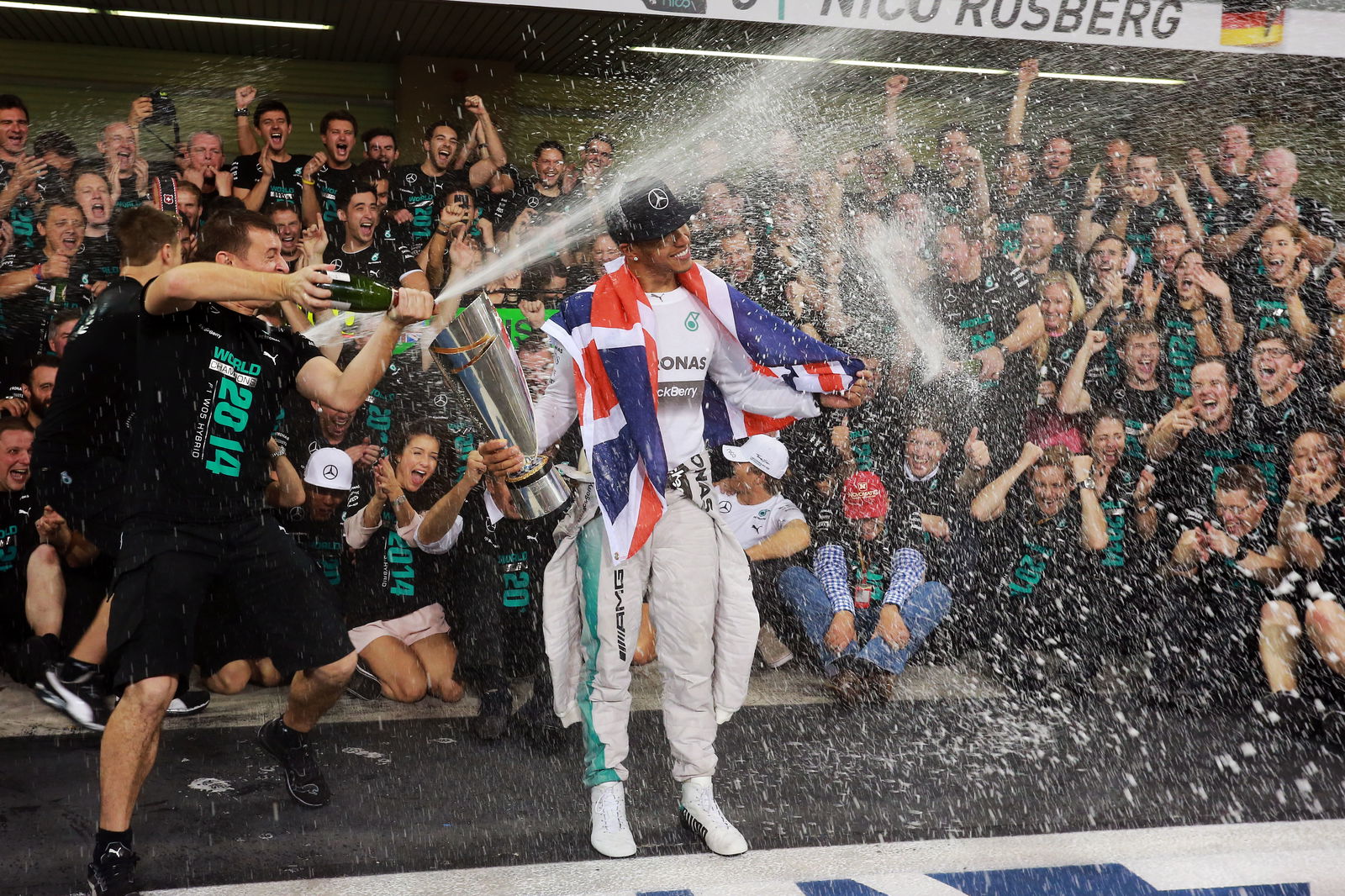
4. 2017: Bouncing back from defeat
Post-2016 Hamilton returned a different beast as he looked to take revenge for his narrow defeat by Rosberg, who immediately retired from the sport days after claiming his maiden title.
While Hamilton’s new teammate Valtteri Bottas entered the equation and proved to be a weaker challenger compared to his predecessor, Hamilton faced a new threat from a revitalised Ferrari spearheaded by four-time world champion Sebastian Vettel.
Learning lessons from his defeat to Rosberg, including making a poor start to the season, Hamilton returned focused and stronger than before as he and Vettel each won three races across the opening seven rounds.
The rivalry came to a head in Baku as Hamilton and Vettel clashed under the Safety Car, but it was Hamilton who seemed to come back from the incident in the better position.
A record-equalling fifth win at Silverstone trimmed Vettel’s points lead down to a single point, before a stunning second half of the season - featuring six wins in seven races - secured Hamilton a fourth world title.
Hamilton’s success was accelerated by a series of reliability failures for Vettel and a costly first-lap crash in Singapore amid a monumental title collapse which the Mercedes driver capitalised on in style.
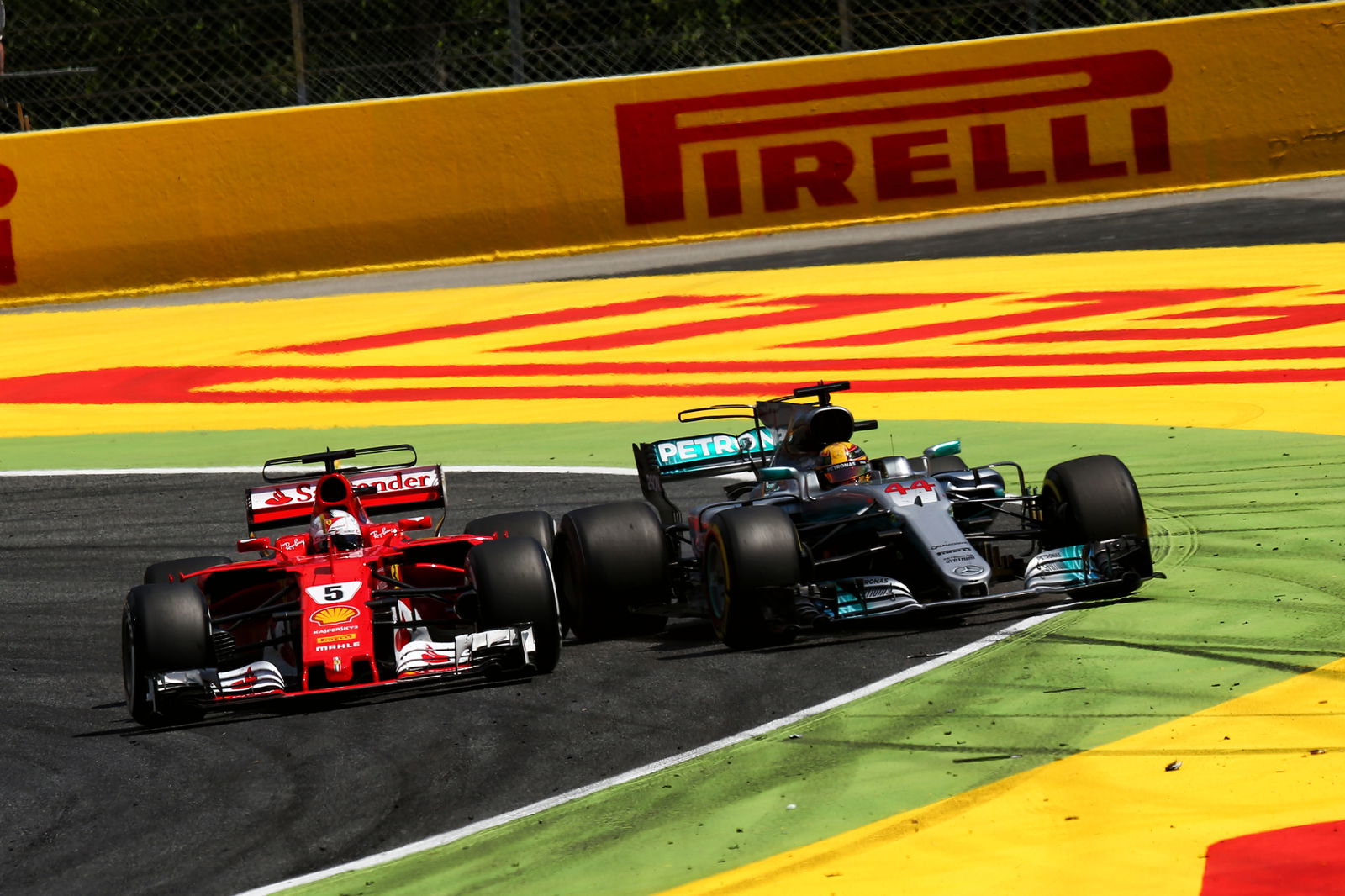
3. 2020: Relentless certainty amid uncertainty
2020 has been a season like no other as a result of the coronavirus pandemic, which wreaked havoc on the campaign and forced a completely revised and condensed 17-round calendar.
Despite the uncertainty, Hamilton remained calm and has been dominant and relentless both on and off track amid his continued fight for equality.
Granted, this year may not have provided a classic title fight by any stretch of the imagination; Mercedes has enjoyed a relatively unopposed season despite Red Bull and Max Verstappen’s best efforts, while Bottas has proved no match for Hamilton apart from rare occasions including the opener in Austria. Nonetheless, Hamilton has found new levels that have been mesmerising to watch at times.
A lack of competition should not take away from Hamilton’s consistently strong and controlled performances. At times he has been faultless and his run to the title been ruthless in its manner, highlighted by crushing victories in Spain, Portugal and Turkey, where his superiority was underlined as he produced a wet-weather masterclass to charge from sixth on the grid to the win, lapping Bottas in the process as he spun his way to a woeful 14th on the day Hamilton sealed the title.
Hamilton has admitted the nature of the relentless, compact season and strict COVID protocols have made this year one of the most challenging and lonely of his career. He has nevertheless prevailed in commanding fashion by wrapping up the championship with three races to spare with 10 victories in 14 races, including winning at all of the ‘new’ venues that were added to the calendar as last-minute replacements.
This is the era of peak Hamilton at the strongest we’ve ever seen him.
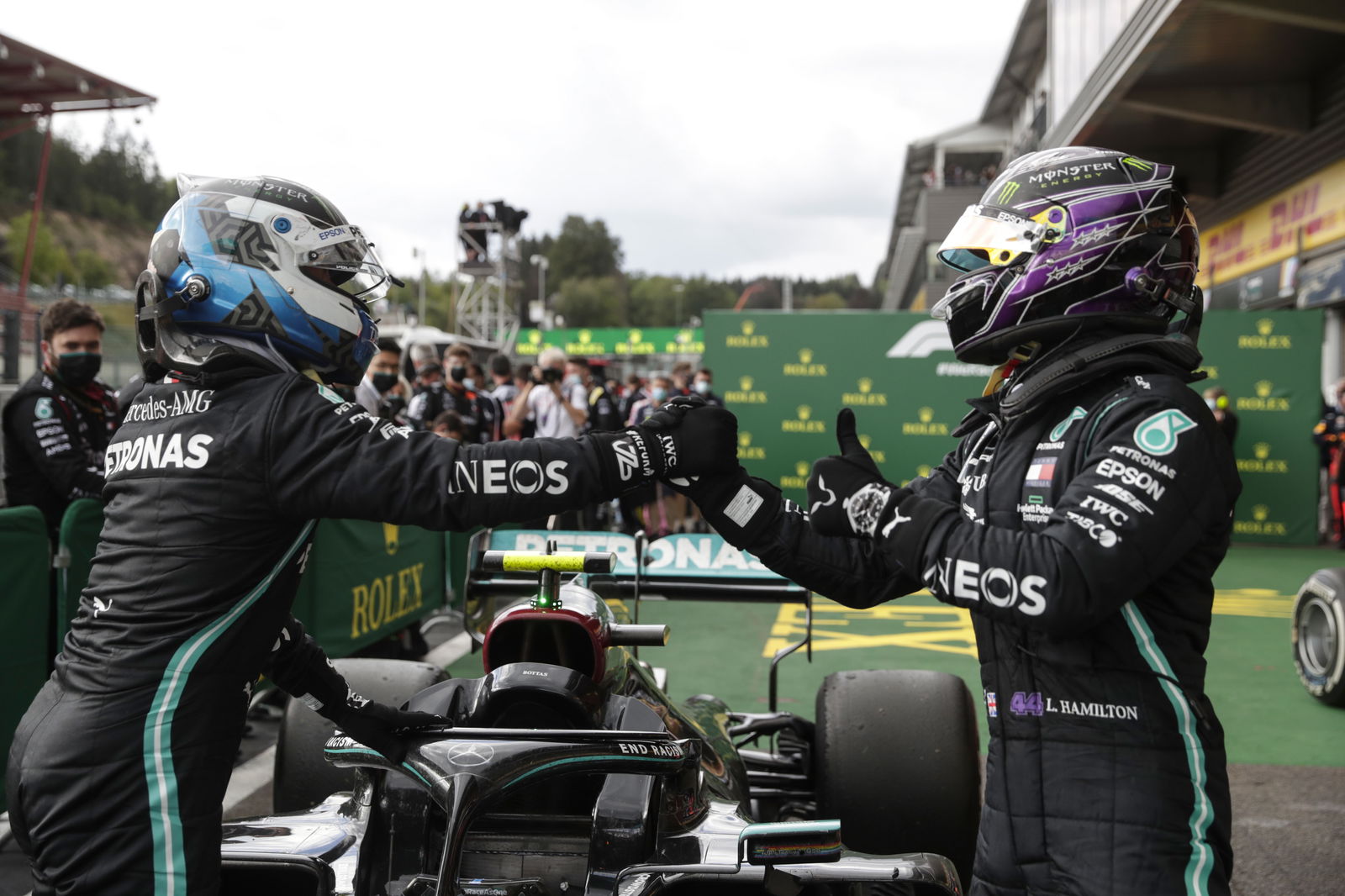
2. 2008: Last-lap drama in Brazil
In terms of drama and entertainment value, 2008 is right up there, but it was arguably not Hamilton’s strongest season in F1.
Beating home-favourite Felipe Massa to the title by a single point at a rain-soaked Interlagos thanks to a last-lap, last-corner overtake produced the greatest, most intense conclusion to an F1 world championship and one of the most dramatic deciders in sporting history.
Given that it was just Hamilton’s second season in F1 after coming so agonisingly close in his rookie campaign made the achievement all the more impressive, particularly when considering Ferrari had an equally-quick, if not faster car, and he faced some mighty challengers in the shape of Massa, 2007 title nemesis Kimi Raikkonen and BMW’s Robert Kubica.
Hamilton was sensationally quick, and part of his rawer element made 2008 so great, but there were also some notable errors that stood out. These included clumsily crashing into the back of Raikkonen at the exit of the pit lane and a disastrous, chaotic start in Japan which acted as minor blemishes in what was otherwise an outstanding sophomore campaign.
But this younger-spec Hamilton made up for any flaws with moments of sheer brilliance - producing one of the great drives of all time by demolishing his rivals by over a minute in torrential rain at the British Grand Prix and a stunning fight-back to win in Germany after a McLaren strategy gamble went wrong.
That Hamilton went on to become F1’s then youngest-ever world champion in the circumstances of the Sao Paolo showdown made for pure sporting cinema that will forever be etched into the championship’s history as one of its standout moments.
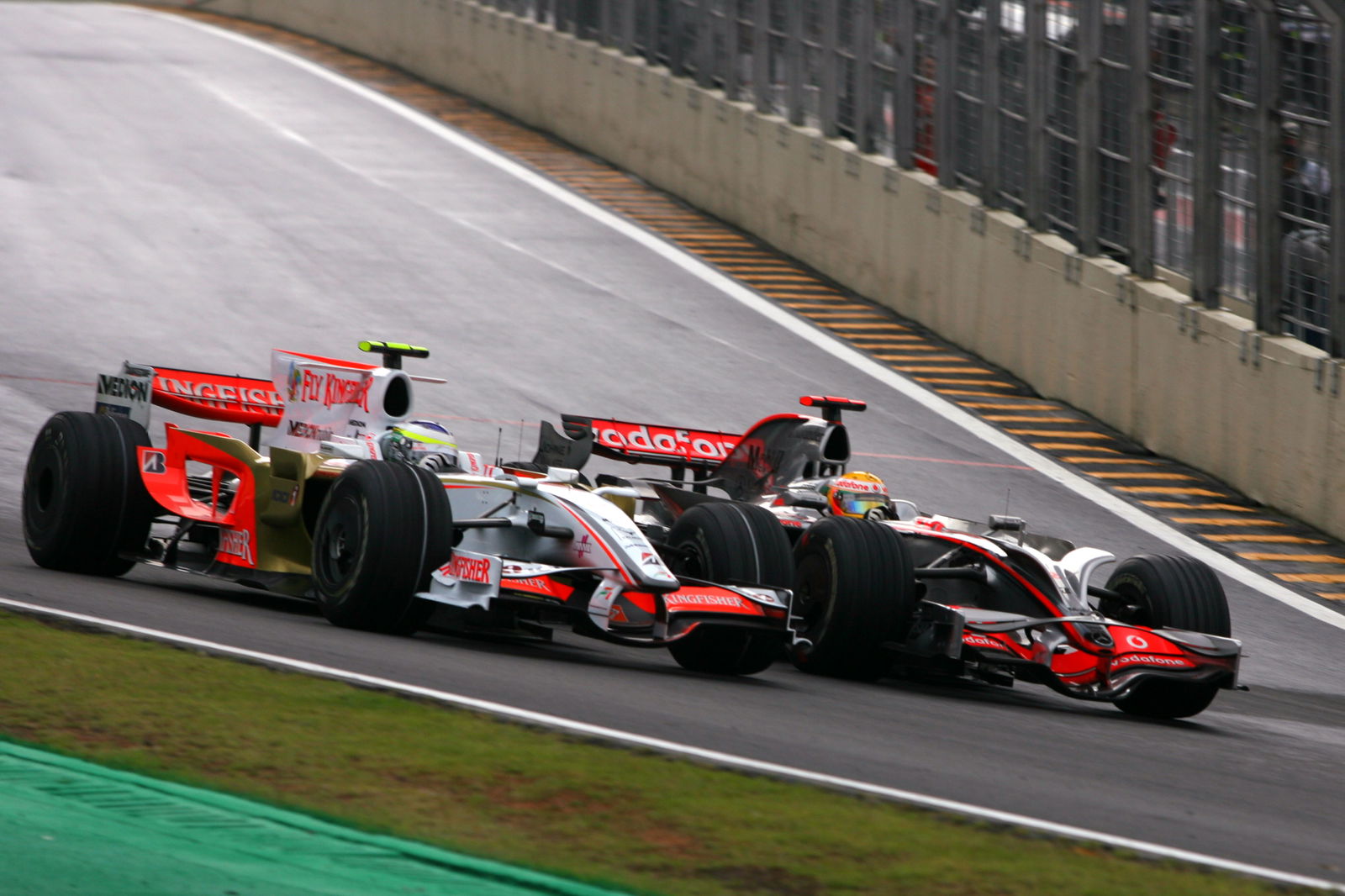
1. 2018: Taking the fight to Ferrari again
Some may be surprised not to see Hamilton’s maiden title triumph at the top of this list, but there were reasons that made 2018 even more impressive.
Arguably, 2018 was Hamilton’s finest achievement yet by winning the title against four-time champion Vettel in a car that was, for at least half the races, faster than his Mercedes.
It was both a physical and psychological battle that Hamilton came out on top in over the course of a season that ultimately could be defined by three key moments.
After the British Grand Prix, where Hamilton was forced into a fightback drive to second having been sent spinning on the first lap by Raikkonen, Hamilton trailed victor Vettel by eight points.
But it was at the next race in Germany where the title picture began to swing dramatically in Hamilton’s favour. The Briton started 14th after a hydraulic failure in qualifying but sensationally carved his way through the field and up to second before Vettel crashed out of a commanding lead during a late downpour.
Vettel’s mistake not only handed Hamilton the win but gifted him a 17-point lead in the championship battle that he would never relinquish. Mentally, it acted as a devastating blow to the German on home soil.
The result in Hockenheim may have been the decisive turning point, but further pivotal moments followed at the Italian Grand Prix, when Hamilton swept past Vettel on the first lap and hunted down his Ferrari teammate Raikkonen to take a brilliant swashbuckling victory. At the next race in Singapore, Hamilton produced a lap for the ages that earned him a crucial pole which he converted into a win at a track where Mercedes had traditionally struggled.
For Vettel and Ferrari, the damage had been done, with Hamilton dealing a huge, irreparable psychological blow. From Germany, Hamilton went on to claim seven victories from the last 10 races in a remarkable purple patch of form en route to a fifth drivers’ crown, while Vettel won just once more.
When Ferrari dropped the ball, Hamilton simply knocked it out of the park.
